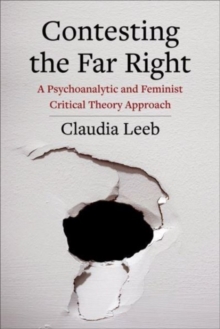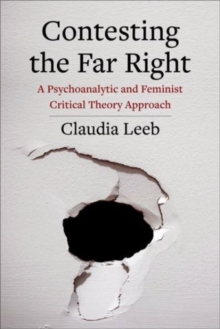
The Racial Discourses of Life Philosophy : Negritude, Vitalism, and Modernity EPUB
by Donna V. Jones
Part of the New Directions in Critical Theory series
EPUB
Description
In the early twentieth century, the life philosophy of Henri Bergson summoned the elan vital, or vital force, as the source of creative evolution. Bergson also appealed to intuition, which focused on experience rather than discursive thought and scientific cognition. Particularly influential for the literary and political Negritude movement of the 1930s, which opposed French colonialism, Bergson's life philosophy formed an appealing alternative to Western modernity, decried as "mechanical," and set the stage for later developments in postcolonial theory and vitalist discourse.
Revisiting narratives on life that were produced in this age of machinery and war, Donna V. Jones shows how Bergson, Nietzsche, and the poets Leopold Senghor and Aime Cesaire fashioned the concept of life into a central aesthetic and metaphysical category while also implicating it in discourses on race and nation. Jones argues that twentieth-century vitalism cannot be understood separately from these racial and anti-Semitic discussions. She also shows that some dominant models of emancipation within black thought become intelligible only when in dialogue with the vitalist tradition. Jones's study strikes at the core of contemporary critical theory, which integrates these older discourses into larger critical frameworks, and she traces the ways in which vitalism continues to draw from and contribute to its making.
Information
-
Download - Immediately Available
- Format:EPUB
- Publisher:Columbia University Press
- Publication Date:05/03/2010
- Category:
- ISBN:9780231518604
Information
-
Download - Immediately Available
- Format:EPUB
- Publisher:Columbia University Press
- Publication Date:05/03/2010
- Category:
- ISBN:9780231518604










